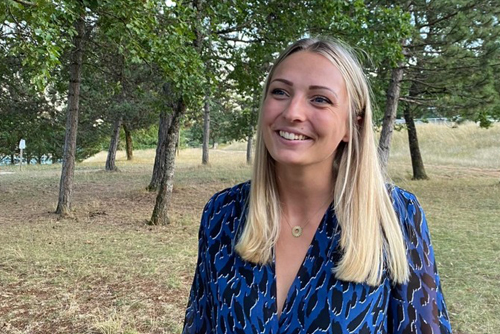
The impact of human activities on the environment results in increasing competition for access to natural resources, and in major environmental and social changes. Addressing the consequences of such effects require changes in the way societies interact. How can we deal with such impacts without supranational institutions, or when the power of such institutions is limited? Is it then possible to promote appropriate coordination between agents in order to manage environmental issues? How do individual preferences induce pro-environmental behaviors? Is the effect of inequalities on cooperation positive or negative? What is the role of equity in the way environmental policies are designed?
This research group tackles these challenges by relying on political economics, social choice theory and environmental economics. More specifically, we rely mainly on game theory, contract theory, axiomatic approaches and applied econometrics.
Research works are focused on two main priorities. The first one is related to the specifics of governance systems: we analyze the interplay between interacting agents’ behaviors and governance systems, accounting for different scales (local, national, international). The second priority focuses on individuals’ preferences and the effect of inequalities, in particular inequalities in the access to natural resources and in the vulnerability to climate changes.
Faculty members
Ph.D Students & Post-docs
Staff
Restoring credibility in carbon offsets through systematic ex post evaluation
Delegating Moral Dilemmas in Autonomous Vehicles Evidence from an online experiment in China
The Making of Civic Virtues: A School-Based Experiment in Three Countries
Behavioral rebound effect and moral compensation: an online experiment
Price magnitude, trading behavior and mispricing: An experiment
Environmental Tax competition and Welfare: The Good News about Lobbies
Productive and destructive group contests: an experimental investigation *
The Impact of Environmental Beliefs, Personal Values and Policy Perception on Recycling Behavior
High-speed railway in developing countries: mind the gap -lessons from Morocco
The limits of behavioral nudges to increase youth turnout: Experimental evidence from two French elections
Pollution, public debt, and growth: the question of sustainability
Congenital anosmia and subjective tactile function: A pilot study
What you don't know, can't hurt you: Avoiding donation requests for environmental causes
Is provisioning rate of parents and helpers influenced by the simulated presence of novel individuals?
La gouvernance des sites Natura 2000 en mer : entre procédures normatives et inventions locales, plaidoyer pour un bricolage institutionnel
The European Renewable Energy Sector in Calm and Turmoil Periods: The Key Role of Sovereign Risk
Note de lecture : "Judith Favereau. Le hasard de la preuve. Apports et limites de l'économie expérimentale du développement, Lyon ENS Editions, col. 'Gouvernement en question(s)', 2021, 292 p."
Solving conflict over common pool resources through delegation to a stakeholder
An Analysis of Intermodal Competition and Multiproduct Incumbent’s Strategies in the French Market: What Drive High-Speed Trains’ Prices and Frequencies?*
L'effet de licence comme ressort de l'effet rebond : revue de littérature et pistes de réflexion
Retour sur la co-construction de stratégies de recomposition spatiale. Le cas de l’Occitanie (France)
Effectiveness of the approval mechanism in a three-player common pool resource dilemma
Contrasting risk preferences in the shadow of volcanic background risk: a field experiment in Arequipa, Perú
Beliefs and preferences as predictors of prophylactic adherence and lockdown compliance in South Africa
- Funding : ANR – Plan de relance – mesure de préservation de l’emploi de R&D
- Duration : 2021 – 2023
- Contact : ROUSSEL Sébastien IBANEZ Lisette
The aim of this project is to implement and evaluate incentive mechanims to reduce domestic water consumption and improve waste sorting. We will design incentives based on social norms (belonging to a group and comparison with peers) via different media (digital, physical…) and test them at the household level. The methodological approach will combine behavioral economics and sociology through a collaborative research project between CEE-M and LyRE / SUEZ. We will rely on experimental (lab) and empirical approaches through Randomized Control Trials (RCTs).
- Funding : ANR (Agence National de la Recherche) ANR-15-CE05-0008
- Duration : 2015 – 2019
- Contact : MAHENC Philippe
Non-governmental organizations (NGOs) are now central actors of policy-making processes as well as initiators of public debates about the needs of environmental policies.
They play a critical role in public politics by providing people with information about the environmental state of the world, bringing social and environmental issues to public awareness, and mobilizing support for political action on these issues.
The aim of the project is to provide analysis and new insight into the economic behavior and strategies of NGOs with respect to the environment.
- Funding : Key-Initiative MUSE Sea & Coast
- Duration : 2018 –
- Contact : WILLINGER Marc
AAP Kim Waters, “Sea & Coast”Local adaptation at risk on the Barbary Tongue (Senegal)
For centuries, the habitat of the villagers of Guet Ndar (Senegal) is exposed to floods of the Senegal River and marine submersions. The high exposure to natural hazards (submersion, flooding) of the population suggests that its inhabitants have adapted to this unique environment, through the selection of the most suitable gene varieties. The project aims at investigating the hypothesis of local adaptation to risk for the inhabitants of Guet Ndar. Local adaptation is possible when three conditions are met: (1) the average migration distance is smaller than the size of the risky area, (2) the behavioral trait adapted to the risky environment (risk tolerance) is transmissible, and (3) living in the risky area provides material benefits that compensate for the exposure to risk. It is highly probable that these conditions are met in the village of Guet Ndar: (1) the migration rate is low, especially among the population of fishermen who pass on their inheritance (canoes, houses, …) to their descendants, (2) the targeted gene, DRD4, is endowed with exceptional variability and is transmissible and (3) the risky area gives access to fisheries resources that have historically been abundant. The risky area (Barbary tongue) is a narrow strip of land of 250 meters in its widest width that extends for about 900 meters in the populated area. Almost all the inhabitants are born there, just like their ancestors. The fishermen of Guet Ndar are renowned for their know-how, not only in Senegal but in several neighboring coastal countries, where they are often recruited to transmit their fishing techniques developed over generations. Fishermen represent the target population of our study because they are most likely to have adapted to local conditions, an adaptation that is expressed by their greater propensity to take risks compared to non-fishermen.
Coordination: Omar Sene & Marc Willinger
Research team: Gwen-Jiro Clochard (CREST, Ecole Polytechnique), Charlotte Faurie (ISEM, CNRS), Guillaume Hollard (CREST, CNRS), Clément Mettling (ISEM, CNRS), Michel Raymond (ISEM, CNRS), Omar Sene (Université Alioune Diop, Bambey , Sénégal), Marc Willinger (CEE-M, UM).
- Funding : ANR (Agence National de la Recherche) ANR-16-CE41-0005
- Duration : 2016 – 2020
- Contact : MAGDALOU Brice
Building on the fiction of the paternalistic ethical observer, we propose to construct measures of socio-economic performance and well-being that (i) acknowledge the multidimensional nature of well-being, (ii) pay due attention to the distribution and interaction between the attributes, and (iii) take full account of the measurability nature of the attributes.
These measures will make one able to provide answers to questions of interest for the policy-maker and the general public like the following:
- Q1. Can we correctly claim that our health system guarantees equal access to medical care whatever the circumstances of the individuals? Is a move in direction to the British health care system likely to reduce the inequalities of health statuses among the population?
- Q2. Does the poor performance on average of French students at the PISA tests go along with high inequalities in the distributions of the scores suggesting that the French educational system might be doubly inefficient?
To which extent inequalities – provided that there is evidence of such inequalities – in reading, mathematics and problem solving are related to the socio-economic characteristics of the parents and more generally to their origins? - Q3. Is ex-post redistribution by means of progressive tax-benefit systems more effective in reducing the long run income inequalities than an ex-ante redistributive policy that would tax more heavily the intergenerational transmission of wealth?
- Funding : ANR (Agence Nationale de la Recherche) ANR-15-CE26-0004
- Duration : 2015 – 2019
- Contact : MAGDALOU Brice
How do individuals perceive inequalities? Do we have to consider all inequalities as unfair?
In parallel to the worsening of the income and wealth inequalities, the last decades have also been characterised by increased social risks. These essentially originate in the profound changes in the labour market structure that go along with a deterioration of the unemployment rates. Hence, even if individuals are concerned with fairness considerations, it is not clear to what extent preferences for redistribution can be associated with such motives. Redistribution can be perceived as social insurance, and thus risk aversion of the individuals may came into play.
The project aims at shedding new light on the preferences for redistribution, by providing a better description of people’s perceptions of inequality and social risks.
The benefits for society of the project would be to provide the social planner with implementable social decision rules which reflect the individual preferences for redistribution, that can be used in public policy making.






























